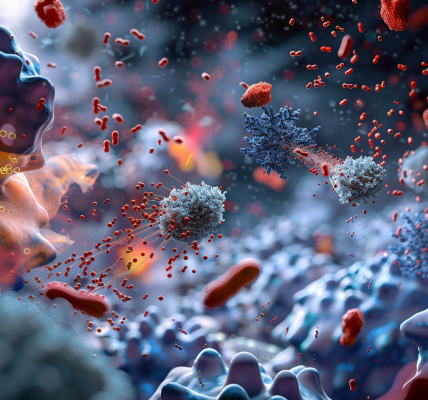In a groundbreaking study, researchers at Massachusetts General Hospital have unveiled a promising combination therapy aimed at enhancing treatment outcomes for liver cancer, particularly hepatocellular carcinoma (HCC). This innovative approach combines the blockade of two critical proteins, CXCR4 and PD1, to boost the activation of dendritic cells, which play a vital role in orchestrating immune responses against tumors.
Liver cancer remains a significant health challenge, with HCC being the most prevalent form of the disease. It is currently the fifth leading cause of cancer-related deaths in the United States, a statistic expected to worsen as projections indicate it could rise to the third leading cause by 2040. Despite advancements in treatment options, including the recent introduction of immunotherapy as a first-line systemic treatment, patient outcomes have not significantly improved. This underscores the urgent need for new strategies to combat this aggressive cancer.
Dr. Dan G. Duda, DMD, PhD, of the Edwin L. Steele Laboratories for Tumor Biology and the Department of Radiation Oncology at Massachusetts General Hospital, is the corresponding author of the study published in Cancer Immunology Research. The research highlights the challenges faced in liver cancer treatment, particularly the resistance mechanisms that limit the effectiveness of existing therapies.
One of the critical factors contributing to treatment resistance is the scarcity of dendritic cells within the tumor microenvironment. Dendritic cells are essential for initiating and regulating immune responses, as they help activate and guide other immune cells to identify and eliminate cancer cells. The study suggests a novel strategy to enhance dendritic cell activity, thereby improving the efficacy of immunotherapy for liver cancer patients.
In their research, the team explored the role of CXCR4, a receptor that interacts with the chemokine CXCL12. This interaction has been shown to impair the immune system’s ability to combat cancer, facilitating tumor growth and metastasis. Previous studies indicated that targeting CXCR4 alone was insufficient in various cancer models, prompting the researchers to investigate a combination therapy involving PD1 blockade.
PD1 is a protein found on the surface of immune cells that can inhibit the immune response against tumors. By simultaneously blocking both PD1 and CXCR4, the researchers aimed to enhance the immune system’s ability to recognize and attack liver cancer cells. The study utilized antibodies with a longer half-life and greater specificity compared to previously tested small-molecule antagonists like AMD3100, which have complex mechanisms and shorter durations of action.
The findings from this study are promising. The combination therapy demonstrated the potential to reprogram the immune landscape within the liver cancer microenvironment, leading to increased dendritic cell activation and improved immune responses. This innovative approach could pave the way for more effective treatment options for patients suffering from HCC and potentially other forms of liver cancer.
The implications of this research extend beyond just liver cancer. As immunotherapy continues to evolve, understanding the interactions between various immune cells and tumor microenvironments is crucial for developing targeted treatments that can overcome resistance mechanisms. The study’s insights into the role of CXCR4 and PD1 in liver cancer may inform future research and clinical trials aimed at optimizing immunotherapeutic strategies for a range of cancers.
As researchers continue to explore the complexities of cancer immunology, the combination therapy approach highlighted in this study represents a significant step forward in the quest to improve outcomes for patients with liver cancer. The ongoing investigation into the tumor microenvironment and immune cell dynamics will be critical in shaping the future of cancer treatment.





